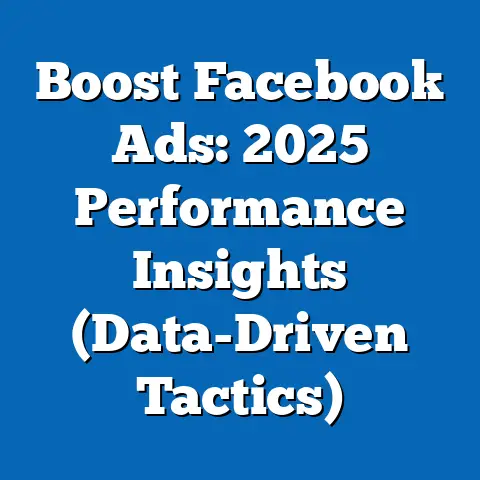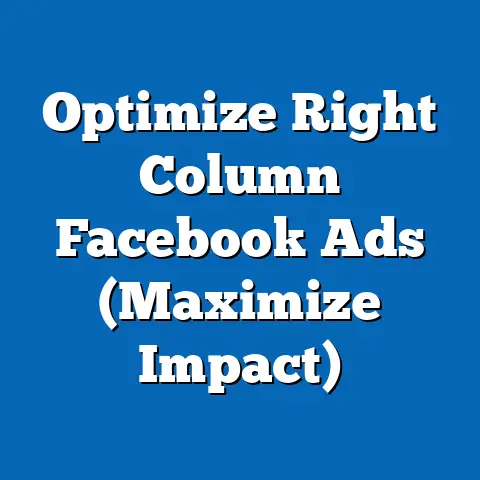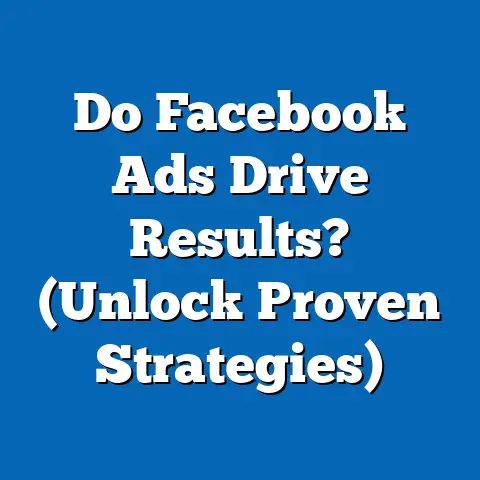Mastering Facebook Gambling Ads (Expert Guide Inside)
The landscape of advertising has undergone a seismic transformation over the past two decades, with digital platforms like Facebook emerging as powerful tools for targeting niche audiences with unprecedented precision. Among the industries riding this wave, online gambling has seen a particularly dramatic shift, leveraging social media advertising to reach potential players in ways traditional media could never achieve. This article delves into the phenomenon of mastering Facebook gambling ads, exploring how this practice has redefined marketing strategies, the historical context that enabled its rise, and the broader societal implications of this digital revolution.
At its core, the transformation lies in the ability of platforms like Facebook to deliver hyper-targeted, data-driven advertisements tailored to individual user behaviors, preferences, and demographics. Unlike the broad, often inefficient reach of television or print ads, Facebook’s algorithms allow gambling companies to pinpoint high-value users with surgical accuracy. This shift not only reflects advancements in technology but also underscores changing societal attitudes toward gambling and digital engagement.
The implications of this transformation are far-reaching, influencing consumer behavior, regulatory frameworks, and ethical considerations in advertising. As we unpack the mechanics of mastering Facebook gambling ads, we will also examine the historical backdrop of gambling marketing, the defining characteristics of this digital approach, and the societal ripple effects—both positive and negative—that accompany this trend.
Historical Context: From Billboards to Digital Billions
To understand the significance of Facebook gambling ads, it is essential to trace the evolution of gambling advertising over the past century. In the early 20th century, gambling was often stigmatized, with marketing confined to discreet channels due to strict legal and social constraints. Advertisements were limited to physical mediums like billboards, newspapers, and radio, often targeting local audiences near casinos or betting shops.
The late 20th century marked a turning point as gambling laws began to relax in many regions, particularly with the legalization of lotteries and the rise of Las Vegas as a global entertainment hub. Television ads became a prominent tool, glamorizing casinos and betting as symbols of excitement and luxury. However, these campaigns were still broad, lacking the personalization that modern platforms offer.
The advent of the internet in the late 1990s and early 2000s revolutionized the gambling industry, giving birth to online casinos and sports betting platforms. Early digital marketing relied on banner ads and email campaigns, but these methods were often seen as intrusive and yielded inconsistent results. The launch of Facebook in 2004, followed by its advertising platform in 2007, changed the game entirely. Suddenly, gambling companies had access to a treasure trove of user data, enabling them to craft highly targeted campaigns based on age, location, interests, and even behavioral patterns.
Significant events, such as the 2018 U.S. Supreme Court decision to strike down the federal ban on sports betting (PASPA), further fueled the growth of online gambling advertising. With legal barriers crumbling, companies rushed to capitalize on digital platforms, and Facebook emerged as a leader due to its vast user base—over 2.9 billion monthly active users as of 2023—and sophisticated ad tools. This historical convergence of legal reforms, technological advancements, and societal shifts toward digital consumption created the perfect storm for mastering Facebook gambling ads.
Defining Characteristics of Mastering Facebook Gambling Ads
Mastering Facebook gambling ads is not merely about placing advertisements; it is a strategic, data-driven process that leverages the platform’s unique capabilities to maximize return on investment (ROI). Several key characteristics define this approach, setting it apart from traditional and even other digital marketing methods.
Hyper-Targeting and Personalization
Facebook’s advertising ecosystem thrives on its ability to segment audiences with remarkable precision. Gambling companies can target users based on demographics (age, gender, location), psychographics (interests in sports or casino games), and behavioral data (previous engagement with gambling-related content). For instance, a sports betting platform might target males aged 25-34 in states where betting is legal, who have shown interest in NFL games or fantasy sports leagues.
This level of personalization allows for tailored messaging that resonates with specific user groups. Ads can be customized to highlight bonuses, specific games, or local events, increasing the likelihood of conversion. Unlike traditional media, where a single ad is broadcast to a diverse audience, Facebook ensures that the right message reaches the right person at the right time.
Dynamic Creative Optimization
Another hallmark of mastering Facebook gambling ads is the use of dynamic creative optimization (DCO). This feature enables advertisers to test multiple ad variations—different headlines, images, videos, and calls-to-action (CTAs)—in real time, automatically optimizing for the best-performing combinations. For gambling ads, this might mean testing whether a flashy image of a slot machine outperforms a video of a live poker game, or if a “Bet Now” CTA drives more clicks than “Claim Your Bonus.”
This iterative approach minimizes guesswork and maximizes efficiency, ensuring that ad budgets are allocated to the most effective content. The result is a continuously evolving campaign that adapts to user responses, a stark contrast to the static nature of traditional advertising.
Retargeting and Lookalike Audiences
Facebook’s retargeting capabilities allow gambling advertisers to re-engage users who have previously interacted with their brand—whether by visiting a website, clicking an ad, or downloading an app. This is particularly effective in the gambling industry, where users may hesitate before committing due to financial or ethical concerns. Retargeting ads can remind them of enticing offers or bonuses, nudging them toward conversion.
Additionally, Facebook’s “lookalike audiences” feature enables advertisers to reach new users who share characteristics with their existing customers. By analyzing the data of high-value players, gambling companies can expand their reach to similar demographics, scaling their campaigns with confidence. These tools exemplify how mastering Facebook ads goes beyond initial outreach to build sustained engagement.
Compliance with Stringent Regulations
One of the defining challenges of gambling ads on Facebook is navigating the platform’s strict policies and regional regulations. Facebook prohibits the promotion of gambling content in certain countries and requires advertisers to obtain written permission before running such campaigns. Moreover, ads must not target minors or promote irresponsible gambling behaviors.
Mastering this space requires a deep understanding of compliance, ensuring that campaigns adhere to both Facebook’s guidelines and local laws. Successful advertisers often work with legal experts and use geo-targeting to restrict ads to permissible regions, demonstrating a balance between innovation and responsibility.
Societal Implications: Opportunities and Ethical Dilemmas
The rise of Facebook gambling ads has profound implications for society, reshaping consumer behavior, economic landscapes, and cultural perceptions of gambling. While the approach offers undeniable benefits for businesses and consumers alike, it also raises critical ethical and regulatory questions that warrant careful consideration.
Economic Impacts: Growth and Accessibility
On the positive side, mastering Facebook gambling ads has driven significant economic growth within the online gambling industry. According to a 2022 report by Statista, the global online gambling market was valued at over $63 billion, with projections to reach $127 billion by 2027. Much of this growth can be attributed to effective digital marketing strategies, with platforms like Facebook playing a pivotal role in customer acquisition.
For consumers, these ads increase accessibility to gambling services, often providing information about bonuses, promotions, and new platforms. In regions where gambling is legal, this can enhance consumer choice and competition among providers, potentially leading to better offerings. However, this accessibility also raises concerns about overexposure, particularly for vulnerable populations.
Social and Cultural Shifts: Normalization of Gambling
The pervasive nature of targeted gambling ads on social media contributes to the normalization of gambling as a mainstream activity. Unlike traditional ads, which were often confined to specific times or locations, Facebook ads infiltrate users’ daily feeds, blending seamlessly with personal content. This constant visibility can desensitize individuals to the risks associated with gambling, framing it as a casual, entertainment-driven pastime.
This cultural shift is particularly evident among younger generations, such as Millennials and Gen Z, who are digital natives and frequent social media users. A 2021 study by the American Gaming Association found that 74% of adults aged 21-34 had engaged in some form of online gambling, a trend partly fueled by exposure to targeted ads. While this reflects evolving societal attitudes, it also underscores the need for education on responsible gambling practices to mitigate potential harm.
Ethical Concerns: Targeting Vulnerable Populations
One of the most pressing societal implications of Facebook gambling ads is the risk of targeting vulnerable individuals, including those with gambling addictions or financial instability. The platform’s algorithms, while effective for advertisers, can inadvertently prioritize users who exhibit compulsive behaviors, as they may show higher engagement with gambling content. This raises ethical questions about the responsibility of both advertisers and the platform itself to prevent exploitation.
Experts like Dr. Sally Gainsbury, a researcher in gambling psychology at the University of Sydney, have highlighted the need for stricter safeguards in digital advertising. “The precision of social media targeting can exacerbate problem gambling by repeatedly exposing at-risk individuals to triggers,” she notes. While Facebook has policies against targeting minors, critics argue that more robust measures—such as limiting ad frequency or implementing opt-out options—are necessary to protect vulnerable users.
Regulatory Challenges: A Patchwork of Policies
The societal impact of Facebook gambling ads is further complicated by the fragmented nature of global gambling regulations. In the European Union, for instance, countries like the UK impose strict advertising standards, requiring clear warnings about gambling risks, while others have outright bans on online gambling ads. In contrast, the U.S. operates on a state-by-state basis, with varying levels of oversight following the 2018 PASPA repeal.
This regulatory patchwork creates challenges for advertisers mastering Facebook campaigns, as they must tailor their strategies to comply with diverse legal frameworks. It also poses difficulties for policymakers striving to balance economic benefits with consumer protection. As digital platforms continue to evolve, there is a growing call for international cooperation to establish consistent guidelines for gambling advertising in the digital space.
Technological Factors: The Engine Behind the Transformation
The success of Facebook gambling ads is deeply rooted in technological advancements that have redefined how data is collected, analyzed, and applied in marketing. At the heart of this transformation is Facebook’s advertising algorithm, which uses machine learning to predict user behavior and optimize ad delivery. This technology processes billions of data points daily, from likes and shares to browsing history, creating detailed user profiles that inform targeting strategies.
Additionally, the integration of mobile technology has amplified the reach and impact of these ads. With over 98% of Facebook users accessing the platform via mobile devices (as per a 2023 Meta report), gambling companies can engage users on-the-go, often during moments of leisure or boredom when they may be more susceptible to impulsive decisions. Features like in-app notifications and seamless links to gambling platforms further enhance conversion rates.
However, technological advancements also come with challenges, such as privacy concerns. The Cambridge Analytica scandal of 2018 exposed vulnerabilities in how social media platforms handle user data, prompting greater scrutiny and regulations like the EU’s General Data Protection Regulation (GDPR). For gambling advertisers, this means navigating a tighter landscape of data usage while still leveraging technology to maintain campaign effectiveness.
Economic Factors: A High-Stakes Industry
Economically, the mastery of Facebook gambling ads reflects the high-stakes nature of the online gambling industry, where customer acquisition costs (CAC) are often steep due to competition and regulatory barriers. A 2022 study by iGaming Business estimated that the average CAC for online gambling platforms ranges from $200 to $500 per user, making efficient advertising critical to profitability.
Facebook’s cost-per-click (CPC) and cost-per-impression (CPM) models offer a relatively affordable entry point compared to other channels like Google Ads, where competition for gambling keywords drives up costs. Moreover, the platform’s ability to deliver measurable results—through metrics like click-through rates (CTR) and conversion tracking—enables advertisers to justify their spend with concrete data. This economic incentive has made mastering Facebook ads a cornerstone of many gambling companies’ marketing budgets.
Yet, economic reliance on digital ads also exposes companies to risks, such as policy changes by Facebook or sudden shifts in user behavior. For instance, the platform’s 2021 iOS 14 update, which limited data tracking due to Apple’s privacy policies, forced advertisers to rethink their strategies. This underscores the need for diversification in marketing approaches to mitigate dependency on a single platform.
Cultural Factors: Shifting Perceptions Across Generations
Culturally, the impact of Facebook gambling ads varies across generational lines, reflecting differing attitudes toward technology and gambling itself. Baby Boomers, shaped by traditional media and often more cautious about online activities, may view digital gambling ads with skepticism, preferring established, physical casinos. In contrast, Millennials and Gen Z, who grew up with social media, are more receptive to online gambling as a form of entertainment, often influenced by peer trends and influencer marketing on platforms like Instagram (owned by Meta).
This generational divide highlights the importance of nuanced targeting in Facebook campaigns. While younger audiences may respond to gamified ads or social proof (e.g., testimonials from peers), older demographics might prioritize trust signals, such as licensing information or brand reputation. Successful advertisers recognize this diversity within their audience, avoiding one-size-fits-all approaches and instead crafting messages that align with cultural values and generational experiences.
It’s also worth noting that cultural attitudes toward gambling differ widely by region, influenced by historical, religious, and social factors. In markets like Asia-Pacific, where gambling is often tied to cultural practices (e.g., Mahjong or lottery games), ads may emphasize tradition and luck. In Western markets, the focus might shift to competition and thrill, as seen in sports betting campaigns. Mastering Facebook ads requires sensitivity to these cultural nuances to avoid alienating potential customers.
Workplace Implications: Skills and Strategies for Marketers
For marketing professionals, mastering Facebook gambling ads has significant implications for skill development and workplace dynamics. The complexity of these campaigns demands expertise in data analytics, creative design, and compliance, pushing marketers to upskill in areas like audience segmentation and A/B testing. Many companies now seek specialists in social media advertising, with job postings for “Facebook Ads Managers” or “iGaming Marketers” on the rise, according to LinkedIn data from 2023.
Moreover, the fast-paced nature of digital advertising requires adaptability, as algorithm updates and policy changes can disrupt established strategies overnight. Teams must foster a culture of continuous learning and experimentation, often collaborating with legal and tech departments to ensure campaigns remain effective and compliant. This interdisciplinary approach is reshaping marketing roles within the gambling industry, emphasizing the integration of technology and strategy.
Expert Guide: Best Practices for Mastering Facebook Gambling Ads
For those looking to excel in this space, the following expert guide offers actionable insights based on industry best practices and data-driven strategies. While success is not guaranteed due to the dynamic nature of digital advertising, these tips provide a strong foundation for crafting effective campaigns.
1. Understand Your Audience Inside Out
Start by leveraging Facebook’s Audience Insights tool to analyze the demographics, interests, and behaviors of your target market. For gambling ads, consider factors like disposable income, interest in specific sports or games, and regional legality. Build detailed buyer personas to guide your messaging, ensuring relevance and resonance.
2. Prioritize Compliance and Transparency
Before launching any campaign, secure necessary permissions from Facebook and review local gambling laws. Use clear disclaimers in your ads (e.g., “18+ only” or “Gamble Responsibly”) and avoid misleading claims about winnings. Transparency not only builds trust but also protects your brand from penalties or bans.
3. Test and Optimize Continuously
Utilize dynamic creative optimization to test multiple ad elements simultaneously, identifying what drives engagement and conversions. Monitor key performance indicators (KPIs) like CTR, conversion rate, and cost per acquisition (CPA) to refine your approach. Allocate budgets to high-performing ads while pausing underperforming ones to maximize ROI.
4. Leverage Retargeting and Lookalike Audiences
Re-engage past visitors with retargeting campaigns, offering personalized incentives like deposit bonuses or free spins. Simultaneously, use lookalike audiences to expand your reach, targeting users similar to your best customers. This dual strategy balances retention and acquisition for sustainable growth.
5. Craft Compelling Visuals and Copy
Gambling ads thrive on excitement and urgency, so use bold visuals (e.g., vibrant casino imagery or live sports clips) and action-oriented copy (“Win Big Today!”). Avoid generic content by tailoring messages to specific user interests, such as poker for card game enthusiasts or football betting for sports fans. Ensure your CTA is clear and enticing, driving users to take the next step.
6. Monitor Ethical Boundaries
Be mindful of the potential impact on vulnerable users by setting frequency caps to limit ad exposure and excluding demographics unlikely to gamble responsibly. Partner with organizations like GamCare or BeGambleAware to promote responsible gambling messages within your campaigns. Ethical advertising not only mitigates harm but also enhances brand reputation.
Conclusion: Forward-Looking Insights and Uncertainties
Mastering Facebook gambling ads represents a transformative chapter in the evolution of digital marketing, blending cutting-edge technology with the high-stakes world of online gambling. This approach has redefined how companies connect with audiences, offering unprecedented precision and efficiency while reshaping societal perceptions of gambling as an accessible, mainstream activity. From hyper-targeting to dynamic optimization, the characteristics of these campaigns highlight the power of data-driven advertising in a digital age.
Yet, as we look to the future, uncertainties remain. The ethical dilemmas surrounding vulnerable populations and the patchwork of global regulations pose ongoing challenges, requiring advertisers, platforms, and policymakers to collaborate on solutions that prioritize consumer protection without stifling innovation. Technological shifts, such as evolving privacy laws and algorithm updates, will continue to test the adaptability of gambling marketers, while cultural and generational dynamics will shape how audiences respond to these ads.
Ultimately, the trajectory of Facebook gambling ads will depend on balancing economic opportunities with social responsibility. As the industry grows—projected to surpass $127 billion by 2027—stakeholders must remain vigilant, ensuring that mastery of this powerful tool does not come at the expense of societal well-being. By fostering transparency, embracing ethical practices, and staying attuned to regulatory and technological trends, advertisers can navigate this complex landscape with both ambition and accountability, paving the way for a sustainable future in digital gambling marketing.





